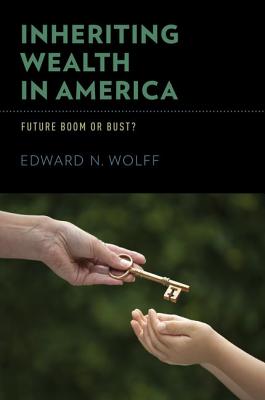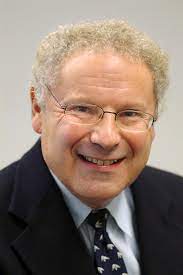

 Oxford University Press, USA
Oxford University Press, USA
Inheriting Wealth in America: Future Boom or Bust?


Key Metrics
- Edward N Wolff
- Oxford University Press, USA
- Hardcover
- 9780199353958
- 9.3 X 6.3 X 0.9 inches
- 1.2 pounds
- Business & Economics > Personal Finance - General
- English
 Secure Transaction
Secure TransactionBook Description
Using data from the Survey of Consumer Finances---a triennial survey conducted by the Federal Reserve Board that contains detailed information on household wealth, inheritances, and gifts---as well as the Panel Study of Income Dynamics and a simulation model over years 1989 to 2010, Wolff reports six major findings on the state of inheritances in America. First, wealth transfers (inheritances and gifts) accounted for less than one quarter of household wealth. However, for persons age 75 and over, the figure was about two-fifths since they have more time to receive wealth transfers. Indirect evidence, derived from the simulation model, indicates a figure closer to two-thirds at end of life - probably the best estimate. Second, despite prognostications of a coming inheritance boom, it has not materialized yet. Only a small (and statistically insignificant) uptick in average wealth transfers was observed over the period, and wealth transfers were actually down as a share of household wealth. Third, while wealth transfers are greater in dollar amount for richer households than poorer ones, they constitute a smaller share of the accumulated wealth of the rich. Fourth, contrary to popular belief, inheritances and gifts, on net, reduce wealth inequality rather than raising it. The rationale is that inheritances and particularly gifts typically flow from richer to poorer persons, thus lowering wealth inequality. Fifth, despite a rapid rise in income inequality, the inequality of wealth transfers shows no discernible time trend from 1989 to 2010, neither upward nor downward. Sixth, among the very wealthy, the share of wealth accounted for by wealth transfers is surprisingly low, only about a sixth, and this share has trended significantly downward over time.
It is true that inheritances and gifts are unequal, with only one fifth of families receiving wealth transfers and these transfers benefitting the rich far more than the middle class and the poor. That, however, is not the whole picture of inheritances in America. Clearly-written and illuminating, this books expertly distills an abundance of data on inheritances into important takeaways for all who wonder about the current state of inheritances and gifts in the United States.
Author Bio
Edward N. Wolff is a professor of economics at New York University and a research associate at the National Bureau of Economic Research. He works within the Levy Institute’s distribution of income and wealth program, and was involved in the development of the Levy Institute Measure of Economic Well-Being.
His principal research areas are the distribution of income and wealth, and productivity growth. Wolff is the author of numerous books, including:
Inheriting Wealth in America: Future Boom or Bust? (Oxford University Press, 2015);
Productivity Convergence: Theory and Evidence, Cambridge Surveys of Economic Literature Series (Cambridge University Press, 2014);
Productivity Growth: Industries, Spillovers and Economic Performance (with T. ten Raa; Edward Elgar Publishers, 2012);
The Transformation of the American Pension System: Was It Beneficial for Workers? (W. E. Upjohn Institute for Employment Research, 2011);
Does Education Really Help? Skill, Work, and Inequality (Oxford University Press, 2006);
Retirement Income: The Crucial Role of Social Security (with C. Weller; Economic Policy Institute, 2005);
Downsizing in America: Reality, Causes, and Consequences (with W. J. Baumol and A. S. Blinder; Russell Sage Foundation, 2003);
Retirement Insecurity: The Income Shortfalls Awaiting the Soon-to-Retire (Economic Policy Institute, 2002);
Top Heavy: A Study of the Increasing Inequality of Wealth in America (Twentieth Century Fund Press, 1995);
Competitiveness, Convergence, and International Specialization (with D. Dollar; The MIT Press, 1993);
Productivity and American Leadership: The Long View (with W. J. Baumol and S. B. Blackman; The MIT Press, 1989); and
Growth, Accumulation, and Unproductive Activity: An Analysis of the Postwar US Economy (Cambridge University Press, 1987).
He is a past managing editor of the Review of Income and Wealth.
Research Interests
Distribution of Income and Wealth
Education
- Ph.D. 1974, Yale University, Economics
- M.Phil 1972, Yale University, Economics
- B.A. 1968, Harvard University, Economics
Source: New York University Arts & Science
Videos






Community reviews
Write a ReviewNo Community reviews